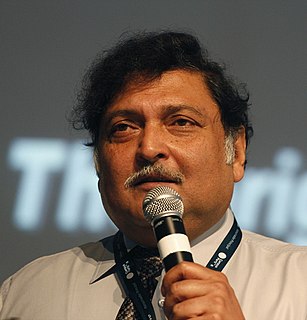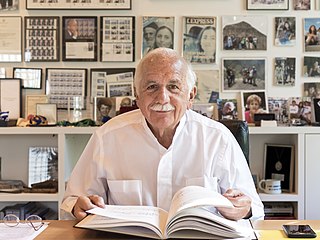A Quote by Sugata Mitra
I don't even want to guess at what computer literacy might do to children, except to say that if cyberspace is considered a place, then there are people who are already in it and people who are not in it.
Quote Topics
Related Quotes
What it is now is basically, I'll sit on my computer; I basically kind of play the computer as an instrument, I guess you could say. I guess I play the Mac. And how it works is, say - I have a program called 'Ableton Live.' And, you know, you'll open it up, and it's just blank. There's nothing there. And then you start.
Peace is here now. It's just that we don't recognize it. Let's say that 98 percent of people in the world are wanting peace. Now people say, even people from Siberia? Yes. We want world peace. The two percent is really tying to mess it up. It's so sad in a way, because by messing it up what are they going to get? Their children are going to suffer, their grandchildren are going to suffer, and they might even die before something gets good.
I would hate to say as a non-African-American person that it would be wrong for a black person to direct white people in a movie. Wouldn't that be awful of me to say that? The only sympathizing thing I might say for people that want to [grumble] is that a filmmaker should have an understanding for the place where the people you're portraying are coming from.
Financial literacy is not an end in itself, but a step-by-step process. It begins in childhood and continues throughout a person's life all the way to retirement. Instilling the financial-literacy message in children is especially important, because they will carry it for the rest of their lives. The results of the survey are very encouraging, and we want to do our part to make sure all children develop and strengthen their financial-literacy skills.
What I'm trying to do is to create excitement. So people looking at the Bloomberg's office building say, "My goodness, what's going on here? There's something different about this company." You want the employees to get psyched. And it's a chance to meet each other. My job is to get people to work together. With free food and no offices, even for Bloomberg, this might be considered one of the world's great corporate headquarters.
I think it's better to have limits. My limits are different from other people's limits. I'm all for freedom, I'm all for people doing what they want. I'm also all for people shouldering the consequences of their behaviors, and not being assholes, and not lying unless they need to, and being honest except when you shouldn't, and being faithful except when it's okay to cheat. I guess I'm just a mass of contradictions.
I draw a distinction between freedom of the internet and freedom via the internet. In the first case, it's making sure cyberspace is not over regulated and people can say what they want without fear of repercussions. But that's different from this freedom via the internet notion, which is often touted by all sorts of conservatives and neoconservatives who want young people in the Middle East and elsewhere in the world to use Facebook and Twitter and then go oppose their governments.



































